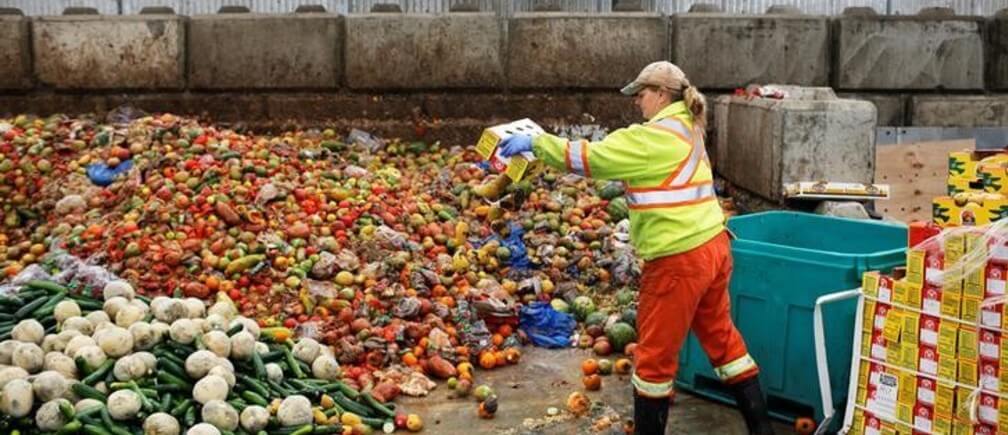
Waste not, want not is something my mother often said when I was growing up.
Wasting food is a common problem in Britain and other parts of the world today, which, on average, was costing the British consumer around £700 in 2021, before food prices went up. So avoiding food waste could certainly result in big savings!
According to WRAP, 45% of global greenhouse gas (GHG) emissions can only be tackled by changing the way we make and consume products and food.
About a third of all the food produced in the UK or imported into the country is wasted. 4.5 million tonnes of edible food is thrown away each year by UK households.
When food waste is disposed in landfill, it produces methane, a powerful greenhouse gas. This process occurs over many years, which means that the methane generated in landfill today is the result of food and other organic waste being dumped there for decades. Food going to landfill today could be producing methane gas decades from now, continuing to make the Earth hotter.
Wasting food is a common problem which, on average, was costing the Britisher consumer around £700 in 2021 before food prices went up. So throwing less food away could result in big savings!
The UN's Sustainable Development Goal 12.3 is to halve food waste by 2030. Government planning and policies and action by the agriculture, food manufacturing and hospitality industries will be very important, but ordinary people can play their part too. The choices we make as consumers will influence industries and the government.
Here are some ways to reduce the amount of food we waste:
- Before your food shop think about what you need, check what you already have and make a list.
- Resist BOGOF offers. Don't buy more than you need even if it's on special offer.
- Buy fresh produce fairly often so it's less likely to go bad before you eat it.
- Don't serve yourself or anyone else too much.
- If people are hungry they could have a second helping. If there's food leftover in the pot it could be frozen or put in the fridge for a day or two and if you can't eat it any other way perhaps it could become part of a soup or stew.
- Stews and soups are also great for using vegetables that aren't looking too appetising but are still OK to eat, like the limp celery at the bottom of your fridge.
- Keep your fridge below 5º C to make sure everything stays fresh as long as possible.
- Don't throw away anything that's past its Best Before date if it still looks, smells and tastesOK. If it's still edible but not very appetising, cooking it could transform it into something delicious.
- Use By dates need to be taken more seriously.
- Vegetable peelings, apple cores and any other uneaten, raw pieces of fruit or vegetables are best added to your compost bin. If you don't have a compost bin then the food waste bin supplied by your local council is the next best place for it.
- If you can't avoid throwing cooked and processed food away, remove it from any packaging and put that in your food waste bin to keep it out of landfill. Keeping food waste out of landfill and processing it in a composting or anaerobic digestion facility instead, which most councils in the UK now do, avoids the generation of landfill methane and also extends the lifespan of the landfill.Other reasons for keeping food out of landfill are that the processes involved in growing, making, distributing, storing and cooking our food all use a lot of fuel and water and produces a lot of carbon dioxide (CO2). Moreover without food waste we would need less land for crops and more could be left for wildlife, too.There are so many great reasons to cut back on food waste. Let me know in the comments what has helped you most to cut down on food waste at home or what might help you waste less food.There's loads more ideas for avoiding food waste on the Love Food, Hate Waste website.WRAP is a climate action NGO working around the globe to tackle the causes of the climate crisis and give the planet a sustainable future, established in the UK in 2000. There's a lot of information about food waste on their website.

No comments:
Post a Comment